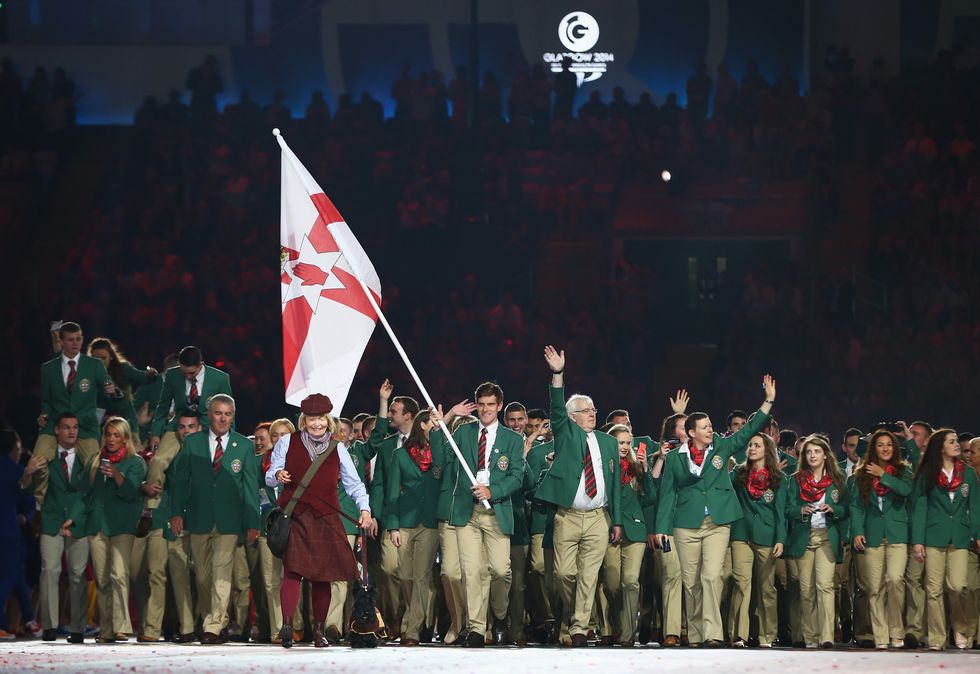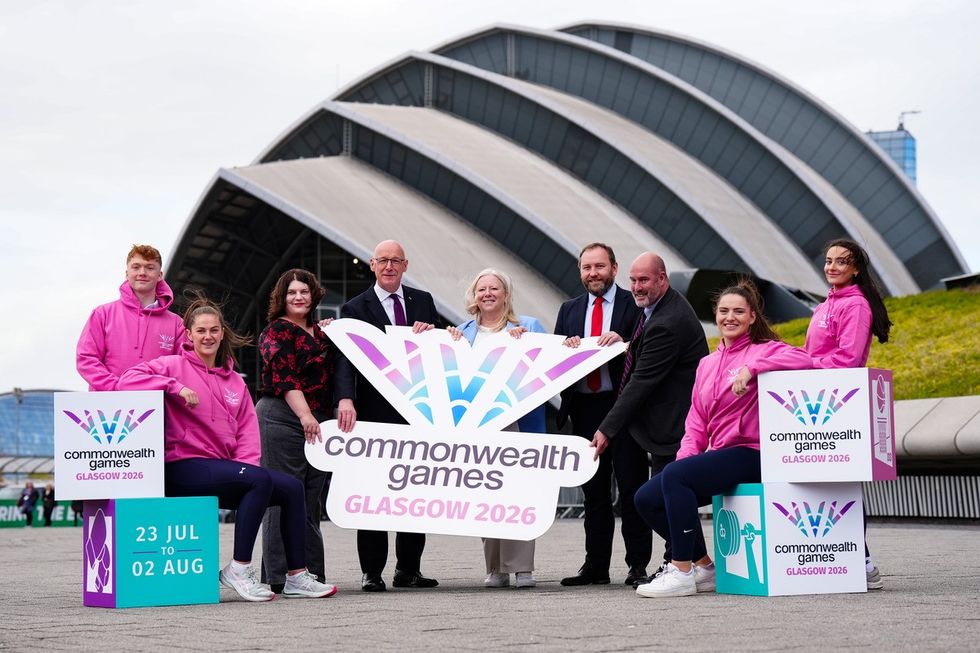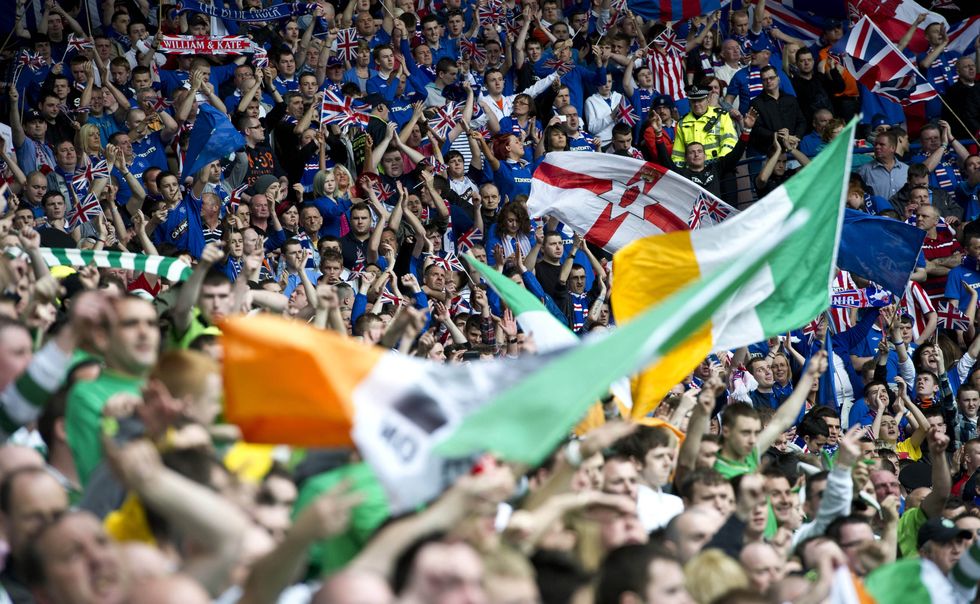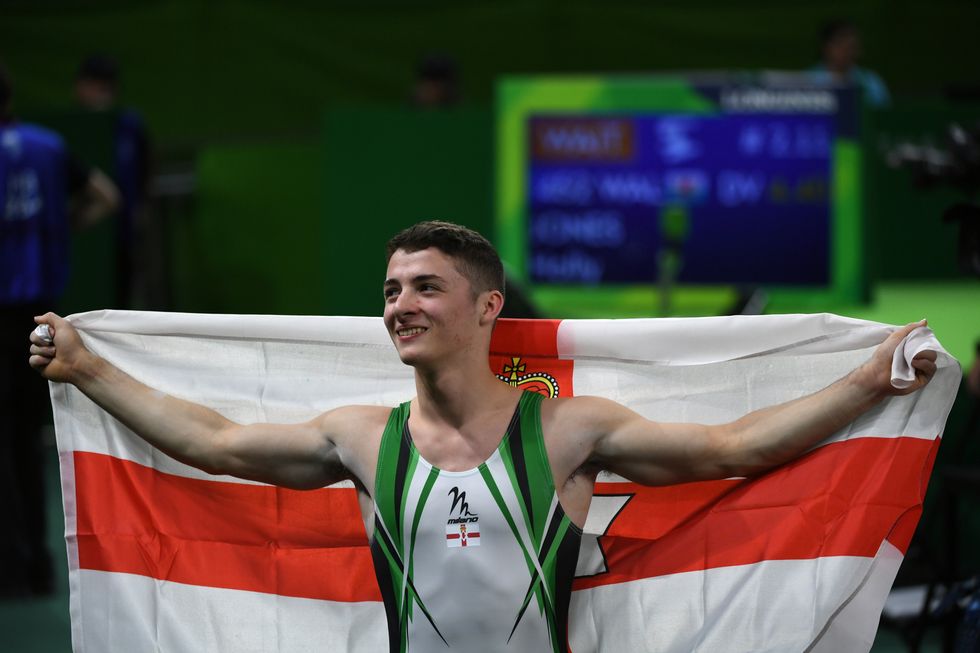Commonwealth Games officials in Northern Ireland have sparked controversy with plans to replace the Ulster Banner with a more inclusive flag ahead of the 2026 Glasgow Games.
The proposal, which will be discussed at Commonwealth Games Northern Ireland’s annual general meeting on Wednesday, has ignited fierce debate among politicians and community leaders.
CWGNI chiefs have indicated they will submit their own version of a flag if the Stormont Executive fails to establish a new civic emblem before the Glasgow Games in 2026.
The move marks a significant challenge to the traditional Ulster Banner, which features the red hand of Ulster on a St George’s cross with a crown representing the monarchy.
The current banner, whilst widely used in international sports, has been a point of contention for Catholics and Republicans who favour reunification with Ireland.
The Ulster Banner, designed in Dublin in 1923, draws its inspiration from the province’s traditional flag.

Northern Irish Commonwealth Games athletes stood with the Ulster Banner
GETTY
Stormont adopted the banner as Northern Ireland’s official flag in 1953.
However, the banner’s official status ceased in 1973 when the administration was abolished.
Despite losing its official standing, the Ulster Banner continues to represent Northern Irish athletes in various international sporting events, including football, golf, and snooker.
The flag’s presence extends beyond sports, with Rangers football supporters regularly displaying it at Ibrox, while their rivals at Celtic Park fly the Irish tricolour.
The banner’s design, featuring the red hand of Ulster, has become particularly associated with loyalist symbolism, contributing to ongoing community sensitivities.
The proposal has met with strong opposition from political figures and community activists.
Expressing his astonishment, DUP MLA Brian Kingston told The Telegraph: “I am astonished – this is a very political manner and in many sports, the flag of Northern Ireland is used.”
LATEST DEVELOPMENTS:

Leader of Glasgow City Council Susan Aitken, First Minister for Scotland John Swinney, Chief Executive of the Commonwealth Games Federation Katie Sadleir, Secretary of State for Scotland Ian Murray and Chief Executive of Commonwealth Games Scotland Jon Doig during a Commonwealth Games host confirmation event at the SEC Armadillo, Glasgow.
PA
Loyalist activist Moore Holmes added: “Only those who would seek to turn Ulsterman against Ulsterman would interpret the Ulster Banner as a sign of offence.”
He further argued that critics were “historically illiterate” in reducing the banner to a symbol of unionist dominance.
“It is actually a fitting expression of Irish, Northern Irish, and British emblems,” Holmes insisted.
CWGNI officials have defended their position, emphasising the need for broader representation in Northern Irish sport.
Chief Executive Conal Heatley highlighted consultations with youth groups, revealing: “We’ve gone out and spoken to groups like the NI Youth Forum, and they don’t recognise the Ulster Banner, it means nothing to them.”
“They would like a flag that everybody can get behind, but something that is inclusive,” Heatley added.
The organisation has proposed a pragmatic solution if Stormont fails to act.

Northern Ireland’s flag row reaches Glasgow for the Old Firm
GETTY
Should the Northern Ireland Executive not establish a new civic flag before the Glasgow Games, CWGNI would submit a white flag bearing the organisation’s logo.
“We’ve given people fair warning, we’ve told them this is what we’re going to do,” Heatley stated.
The officials emphasised they would not design a new flag themselves, instead calling on Stormont to create one aligned with the 2020 report on flags and identity.
Support for change has emerged from some political quarters, with Alliance party MLA David Honeyford emphasising inclusivity concerns.

Northern Ireland’s Rhys McClenaghan reacts after winning the men’s pommel horse final artistic gymnastics event during the 2018 Gold Coast Commonwealth Games
GETTY
“The difficulty is members in the team don’t see it as their flag – and they’re looking to build an inclusive society,” Honeyford claimed.
He stressed that building an inclusive society “has to include absolutely everybody”.
The debate reflects broader discussions outlined in the 2020 report on flags, identity, culture and traditions.
This report recommended that any future Northern Ireland flag should be “representative of the diversity of our society, including our new communities”.